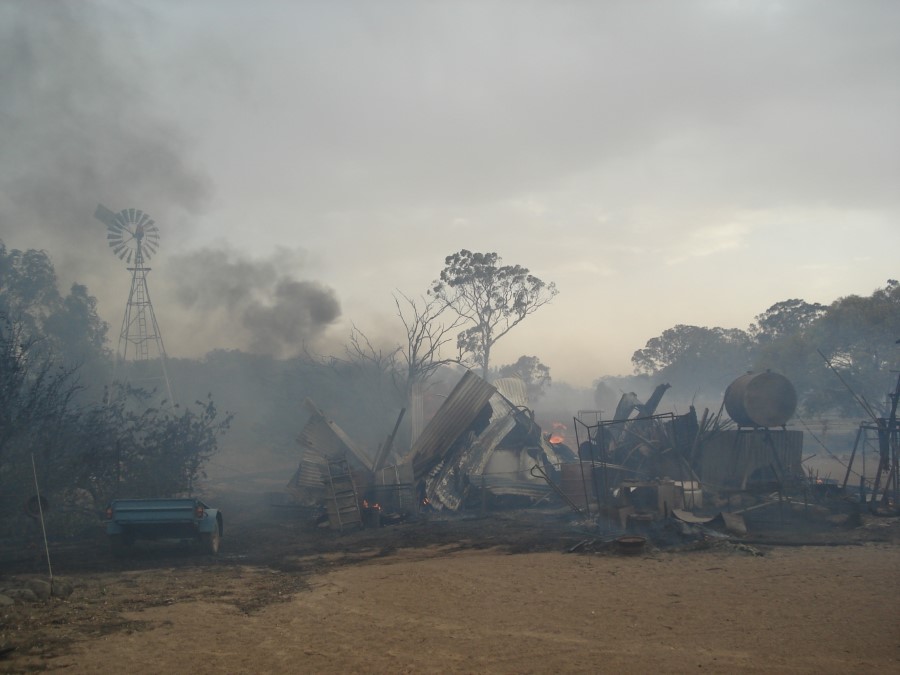Clare Claydon and Win Westerhoff live on mainly agricultural land at Glenhope.
Fire shouldn’t be able to tear through that land but the perfect storm of Black Saturday’s heat and wind, and 10 years drying out in the Millennium Drought, meant it stood no hope.
The fire had been snaking its way along the boundary of their property and they thought it would go past them, but a wind change turned what had been the edge of the fire into a fire front that surrounded their home.
Clare and Win and their friend David fought the fire for hours; their lungs, throats and eyes burning from the ash and the smoke. They managed to save their house, two vehicles and their horses, but nothing else.
“David later said he had the escape route worked out,” Clare remembers.
“But there was no information available about the fire and the smoke was extraordinary, so by the time we knew the fire was coming, it was far too late to go.
“That modern message of if you’re going, go early, that is so right.”
Clare and Win lost nine sheds, two vintage horse-drawn carriages, a tractor, a horse float, all of Win’s tools, their flock of chooks and 20 beehives all full of honey and ready to be extracted.
Two brand-new 5000-gallon tanks melted even though they were full of water, and $3000 of extracted honey in jars and ready to sell was lost, $3000 worth of hay, three years of firewood (cut to length and dried), 80 fruit trees in their orchard, their large vegie garden, all of the fences and everything outside the house.
“There was no ‘oh the fire is coming, we need to do this, we need to do that’, you just did what your adrenalin-induced tunnel vision saw as imperative,” Clare says.
“You’re on autopilot when the fire comes through, that’s why they say you need to have a plan, and rehearse it … because you’re going to be on autopilot when it comes, quite incapable of logical thought or planning.”
Clare says extraordinary things happen to people under stress.
“Immediately after the fire front had passed I mopped the sitting room floor,” she recalls.
“I did it because I could, because I could control it, because I had a floor.
“It’s just a rote thing that you do to hold onto your sanity.”
Two and a half years spent rebuilding sapped Clare and Win’s resilience, but the generous support they received helped them get through it.
“What we feel about it now is that, because we spent that two and a half years immersed in rebuilding and in talking about our experience and allowing friends and family to support us, we’re no longer grieving about it, we feel healed, and we feel that the fire is just part of the rich tapestry of our past lives,” Clare says.
“We had incredible gifts from complete strangers. People were extraordinarily generous. The donations from the Red Cross appeal, to which so many ‘ordinary’ people inside and outside Australia contributed, made a huge difference to us getting back on our feet.
“There was money raised for people who were flooded out in Queensland and a lot of the money was rerouted by those people themselves who said, ‘look those fire people need it much more’.
“It really moved people to see the incredible power of the fire and the hopelessness of the human effort in trying to control it.”









